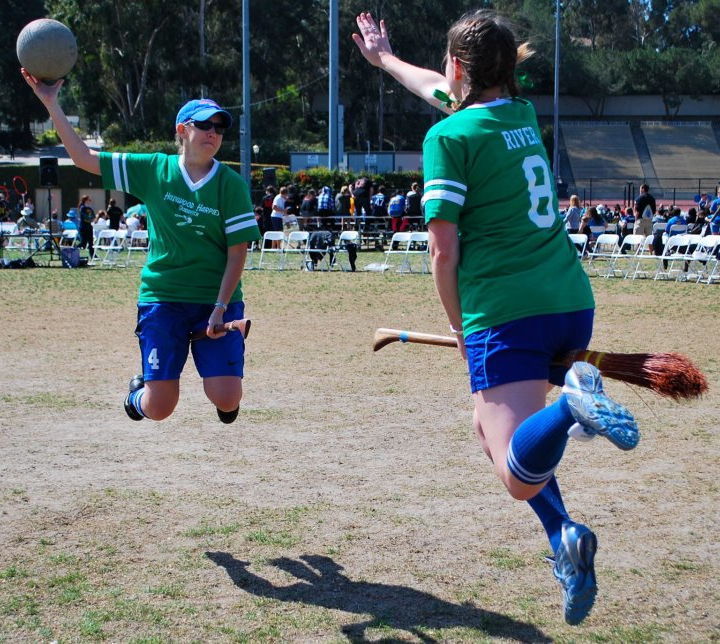We all have friends who gather on their couches to watch the Super Bowl, Stanley Cup and World Series. I just finished watching a 15-inning game of college softball on ESPN. But how many people do you know who get off that couch and shoot some hoops on their own? There’s probably a handful, but for many of us, finding an adult community sports league can be intimidating.
Here are a few good reasons to join an adult sports league, even if you don’t consider yourself an athlete:
#1: Social Exercising
I don’t know what’s worse: the Freshman 15 or the College Degree’d 30. Whatever workout habit you may have had built into your class schedule, that luxury is gone. Now, you are on-the-go all the time. Eating from the drive-thru, or at your desk, or on your couch after 8 pm. Who wants to force themselves to dedicate time to exercising when you barely have time to breathe?
Recreational sports are an easy answer. Depending on the sport, the exercise can be vigorous or moderate, but you still get to meet new people no matter what level of play. Depending on the league you are in, you might even have practices with bonus exercise.
Additionally, you might find your company has a work league or work team. I can tell you right now, playing softball basically got me hired out of my internship and into my first big-person job. My soon-to-be boss and I warmed up and started chatting and, a year later, I graduated and had my first job (because they really needed my help in Center Field… I mean… in the office).
#2: Try something new!
Remember when we were little and your parents signed you up for things like soccer, tennis, basketball, theater camp, and piano? By the time you reached 14, you probably had to start specializing—pick one after-school activity or pick one sport.
But life isn’t over yet! Want to learn play golf? Sign up for a beginner’s course and bring some friends to the driving range. Did you always want to learn to play lacrosse but never could find a league as a kid? Ask your local league if they accommodate beginners. There are so many people who try new sports after they leave school, and it ends up being a center of their social life. I know people who have learned Ultimate Frisbee and Curling. Heck, go read Melissa’s article about Quidditch and tell me you don’t want to try it, too!
Don’t worry if you aren’t that good right away. If you like the league and team, you’ll get better with time
#3: Rekindle a love of sports.
While my primary form of exercise is running, my first love will always be softball. I played in work leagues and slowpitch leagues, but it just wasn’t the same as the fastpitch I grew up playing.
But now, I play and manage two fastpitch teams and it’s my favorite hobby. It keeps me sane. Both my teams are in an 18+ women’s league with players at every level. I even got to go to a tournament in Las Vegas—seeing 12 teams from 4 different states compete against each other reminded me why I love this game.
Now a few tips to find a sporting league for you!
The two best places to find a league are through your work and through your city’s parks and recreation department. Many major corporations have company leagues or company teams sponsored through their employee activities program. Additionally, your city has adult sports leagues (mine varies from $40-90 per player per season), just like the ones for kids.
If you can’t find leagues through either of those, there are two private companies that run leagues across the United States: Zogsports and Planet Social Sports. Both these leagues generally offer multiple sports a year and usually make deals with local bars to host the athletes for post-game drinks. ZogSports also raises money for charity and offers volunteer opportunities to players in the league (it was founded in NYC in the wake of 9/11).
Lastly, if you are looking for an obscure sport, I highly recommend using Sportsvite or Meetup. Sportsville a Facebook-type community for sports lovers to find teams or find players for their teams.
Level of Competition
Make sure you join a team in the correct level of competition and find a patient manager. You don’t want to play on a team that plays to win if you are just there to have a good time! I can’t stress enough how important a good manager with the right vision can be to your experience. You don’t deserve to be screamed at for a simple mistake, especially when you are paying to play in this league. I know it sounds silly, but sometimes people don’t have the same priorities.

Photo by Meaghan Morrison
